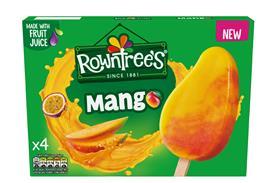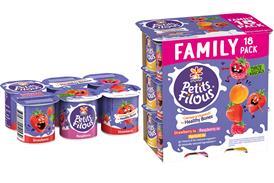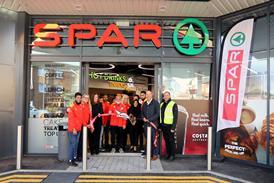Tesco is likely to leapfrog Spar to become the biggest c-store chain by sales this year, according to latest research from retail analysts Verdict.
The report, Neighbourhood Retailing 2006, shows that the supermarket giant increased its neighbourhood sales by £200m to £2.4bn in 2005 and now has a 5.4% share, just 0.2% behind leaders Spar.
Verdict analyst Nick Gladding commented: “With Tesco’s formidable track record of growth, it is hard not to see Spar being forced to relinquish its crown during 2006.”
The report also says neighbourhood shops are growing sales per square foot two-thirds faster than high street or out-of-town stores, as supermarkets build their small store portfolios.
Gladding said: “The arrival of the major grocers into the neighbourhood arena is driving improved sector performance as players transfer their expertise in superstore retailing, enhance ranges and make prices more competitive. Existing convenience store operators have been forced to fight back by increasing their own standards in order to remain competitive.”
Gladding sees strong links to the local community as the key to other convenience stores remaining competitive. He added: “With a strong heritage, convenience store retailers need to actively advocate themselves as a hub of the local communities they serve.
“Promoting local events and developing product ranges and services that cater for the immediate population will enable them to forge closer ties with the local community - something the major grocers have yet to achieve.”
The report, Neighbourhood Retailing 2006, shows that the supermarket giant increased its neighbourhood sales by £200m to £2.4bn in 2005 and now has a 5.4% share, just 0.2% behind leaders Spar.
Verdict analyst Nick Gladding commented: “With Tesco’s formidable track record of growth, it is hard not to see Spar being forced to relinquish its crown during 2006.”
The report also says neighbourhood shops are growing sales per square foot two-thirds faster than high street or out-of-town stores, as supermarkets build their small store portfolios.
Gladding said: “The arrival of the major grocers into the neighbourhood arena is driving improved sector performance as players transfer their expertise in superstore retailing, enhance ranges and make prices more competitive. Existing convenience store operators have been forced to fight back by increasing their own standards in order to remain competitive.”
Gladding sees strong links to the local community as the key to other convenience stores remaining competitive. He added: “With a strong heritage, convenience store retailers need to actively advocate themselves as a hub of the local communities they serve.
“Promoting local events and developing product ranges and services that cater for the immediate population will enable them to forge closer ties with the local community - something the major grocers have yet to achieve.”



















No comments yet